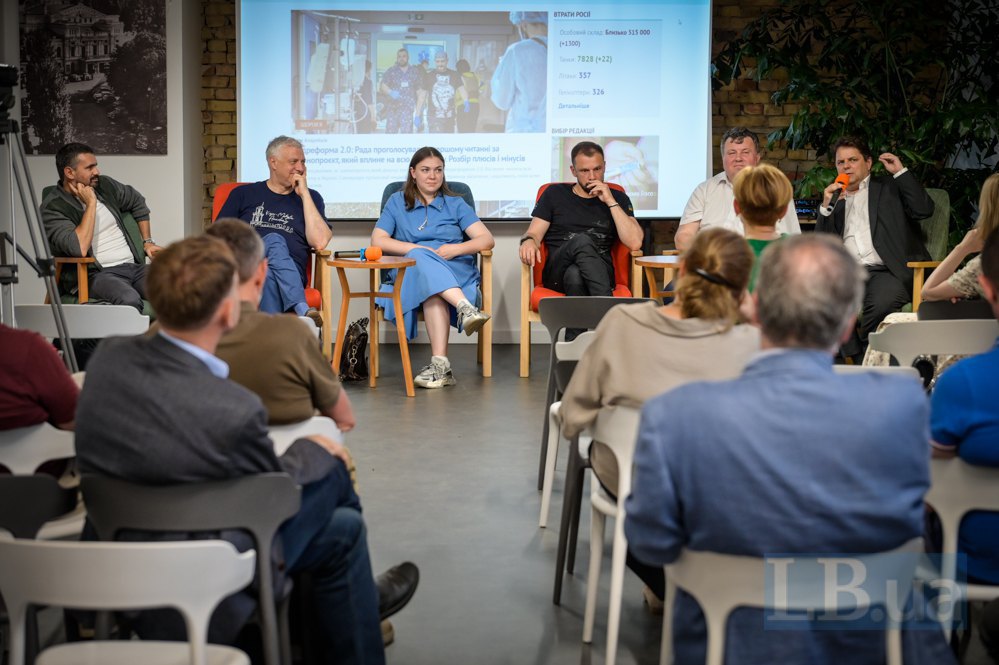
What is wrong with Ukrainian education?
Fundamentally, basic education in Ukraine is not bad, says Deputy Minister of Education and Science Mykhaylo Vynnytskyy. As a person who migrated to Ukraine and whose children studied abroad, he says he has something to compare with: the basic knowledge provided by Ukrainian education contributes to the development of erudition, outlook, initiative, communication skills, etc.
The problem with higher education is that society generally does not require anything more than a diploma, Vynnytskyy believes. People expect a piece of paper, not responsibility and subjectivity, he says.
"76% of school leavers go to higher education. Why? Because my mother said it was necessary... There is a public demand for a 'diploma'," the deputy minister adds.
According to the rector of Taras Shevchenko National University of Kyiv, Volodymyr Buhrov, this happened because the Ministry of Education once adopted the Soviet system, renamed educational institutions, but did not optimise or reform them. As a result, vocational schools became institutes, institutes became academies, academies became universities, and vocational or secondary specialised education students ended up among university students.
"From the very beginning, we let the system go, when we should have been cutting it. In fact, the ministry has always had a tool - compliance with licensing requirements. It didn't even need legislative norms - just control in the field of education, as provided for by the current legislation. All this could and should have been done. But it required political will," says Bugrov.
The demand for higher education, says Serhiy Kvit, rector of the Kyiv Mohyla Academy, can also be explained by the fact that people cannot find a decent job with a good salary on the labour market, so they simply decide to go to university, although not everyone needs it.
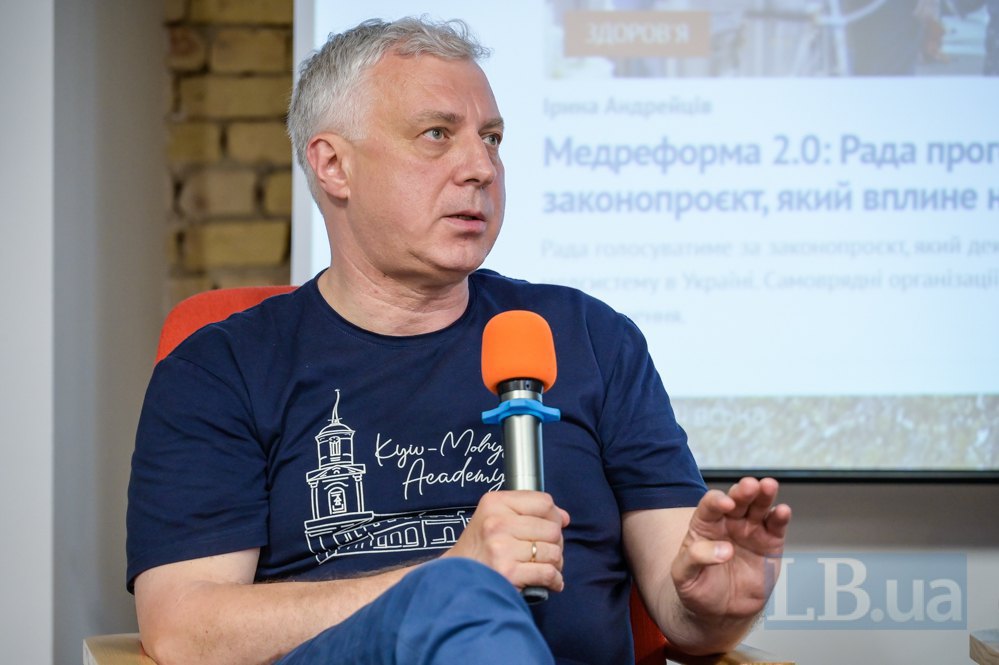
"It seems that 90% of students just want to do something, study remotely, enter without EIT (External Independent Evaluation - the examination for admission to universities in Ukraine), and leave without exams. They just want to get a piece of paper. The 10% who have a demand for quality education go to the best universities, to the best programmes, understanding where they will work, having a strategy for their development," outlined the approximate demand of society for higher education, Serhiy Babak, Chairman of the Verkhovna Rada Committee on Education, Science and Innovation.
That is why, he believes, the reform of higher education should be fast and radical. As well as secondary education, emphasises former Minister of Education Liliya Hrynevych. Problems begin in secondary education, she believes: a significant number of children cannot read thoughtfully and lack basic knowledge of mathematics, as evidenced by the data from the PISA international student achievement study, in which Ukraine took part in 2022.
"In 2022, in reading literacy, we dropped from 25% of students who do not reach the basic level and cannot read with understanding to 42%. Our children cannot read and understand information with concentration. Maths scores have also fallen dramatically - to 46%," says the former minister.
This means that in three to five years Ukraine will face a "real educational catastrophe".
"And when we are in the post-war period (and we will definitely be in it), we will face a number of classic challenges that all countries that fought experienced. And among these challenges is the marginalisation of a part of the population. When people, especially after such a wave of violence, start to get something not with their heads, not with education, not with a profession (because they simply did not have the opportunity to get it at that time), but with violence," says Liliya Hrynevych.
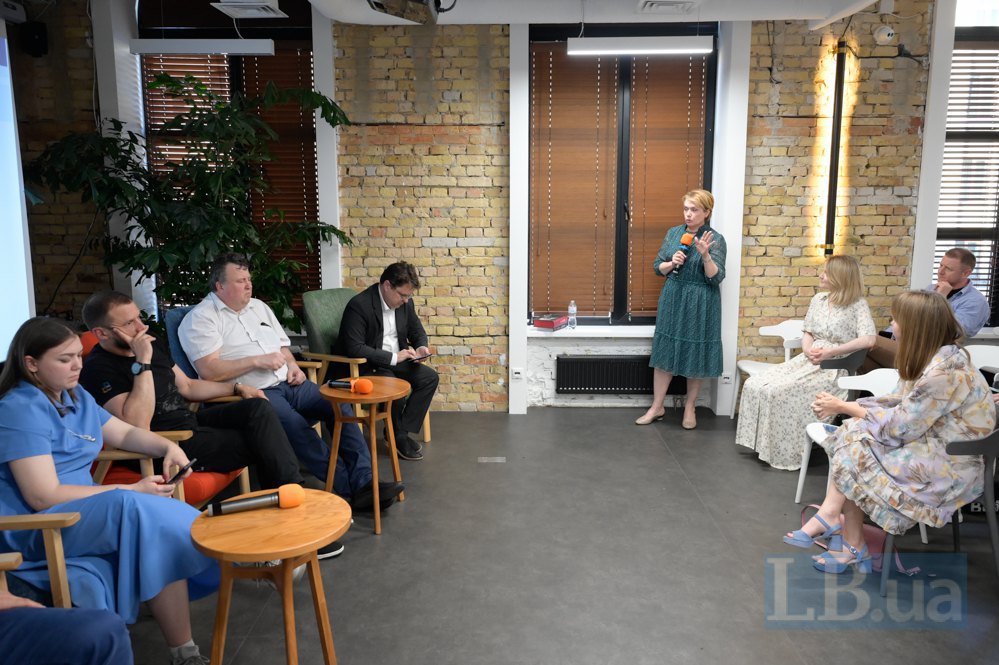
That is why taxpayers should invest in what they consider to be inefficient education and put pressure on the Verkhovna Rada to improve its quality and optimise it, as it is very difficult to change the system from within, Hrynevych emphasises. At the same time, she supports the initiatives of Mykhaylo Vinnytskyy, calling him "the most radical Deputy Minister for Higher Education" who sometimes has to endure literal harassment from his colleagues.
What does the reform offer and can it be implemented quickly?
The education reform has been going on for ten years. Sometimes it speeds up, sometimes it slows down, and it depends on whether there is agreement between the Minister of Education and the head of the relevant committee, says Mykhaylo Vynnytskyy, Deputy Head of the Ministry of Education and Science. And the system itself, which consists of 1.1 million students and 110,000 teachers, often resists reform through MPs and local authorities.
The reform, as envisaged by the Ministry of Education, aims to:
● Reduce the number of educational institutions, optimising them to a minimum of 10,000 students
"If an educational institution is small, there is no competition, because there are few students, few teachers, and little choice. Therefore, we have to modernise our network with a minimum number of 10,000 students. Is this suitable for all institutions? Obviously, no. A conservatoire with 10,000 students makes no sense. It also makes no sense to join the conservatory to Shevchenko University. There will be small institutions, but the system needs to be enlarged," says the Ministry of Education and Science.
● Subjectivise students and teachers
"Responsibility for one's own decisions is fostered at the student level. This means that the system should be based on their choice. On the competition between teachers for students. On the competition of institutions for intellectual resources (teacher plus student and plus postgraduate student)," explains the Deputy Minister.
"This creates competition between subjects in an educational institution, when there is no structured programme and the student's trajectory depends on his or her choice. A market for subjects is being formed.
● Divide universities into those that "form a personality" and those that are oriented towards the labour market
The second part was the main complaint of businessman Ihor Liski to the education system, which does not take into account the needs of business today.
"I employ six thousand people. I am not the biggest business, but last year I paid 700 million hryvnyas in taxes. I know that most of these taxes were spent on maintaining inefficient universities. I could at least be asked who we are going to graduate. Right now I want to build a glass production plant. Who will give me these specialists? There are none. And Ukraine will never have such a plant unless I bring people from Azerbaijan again," the businessman stressed.
This was confirmed by the rector of the Kyiv Mohyla Academy, Serhiy Kvit. Employers today do not order specialists and do not participate in the creation and development of educational programmes.
● Comprehensively reform the Master's degree programme
It can no longer be just the fifth or sixth year of study, it is a separate level of higher education.
● Postgraduate studies should stop being a profanation
Situations where postgraduate students do all the work for professors should disappear. Mykhaylo Vynnytskyy proposes to abandon the PhD degree and introduce a Doctor of Philosophy, which will fundamentally change the approach to training a scientist.
"And it all sounds very nice, philosophically sounding, and is well implemented through various principles, including European ones, some legislative thinhasgs," the Deputy Minister of Education notes, and then the reality hits: 140,000 people want to enter postgraduate studies (instead of the traditional five thousand before the war), and another 100,000 want to enter master's studies.
What rectors want from the reform
The head of Mohyla Academy, Serhiy Kvit, advocates full autonomy for universities, especially financial autonomy.
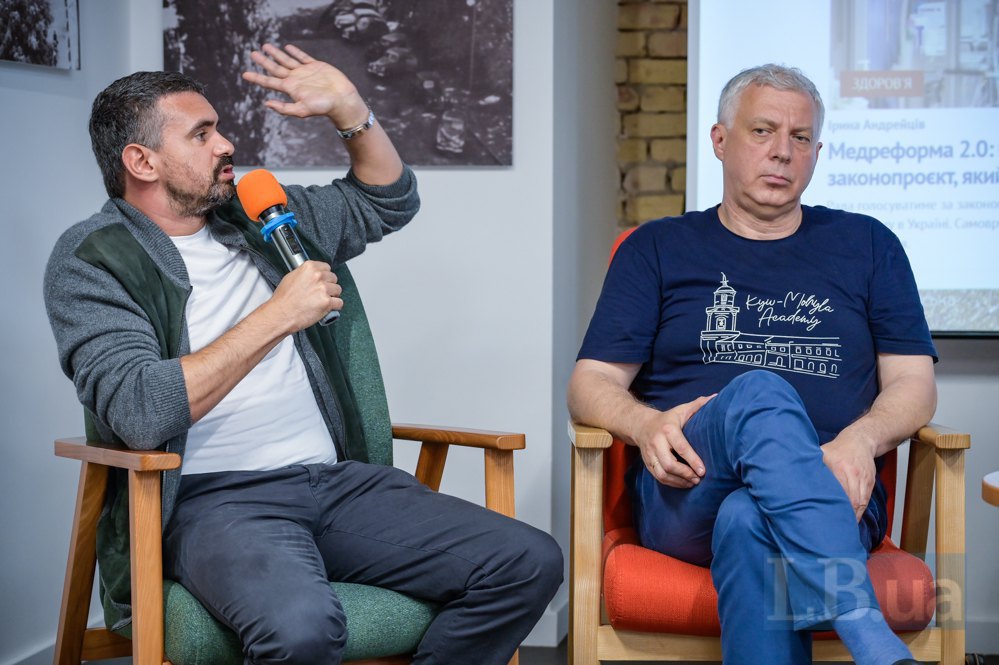
"The key idea behind the law on higher education was comprehensive university autonomy: academic, financial, and organisational. We have achieved academic autonomy - all our universities have the same rights as American, Canadian or Australian ones. But universities cannot capitalise on their achievements because the state continues to control their financial life.
...According to the Western analogy, the national interest of the state should be to have quality graduates, quality research results that would change the economy and society, not to control which table the university buys and for how much," Kvit says.
Kseniya Semenova, acting rector of the National Aviation University, believes that effective supervisory boards can be a remedy for rectors' arbitrariness.
"In order not to reinvent the wheel, there is a corporate form of governance where there is a balance of branches of power. When the supervisory board can make decisions. These are not the rector's friends who simply reinforce him politically. These are the people you are nervous about when you report to the supervisory board on an issue. This is what it looks like in the corporate sector. And this is how it can be in universities," Semenova says.
According to her, the Ministry of Education and Science is preparing an experimental decree on the corporate governance system. However, such a form cannot exist in budgetary institutions.
Volodymyr Bugrov, Rector of Taras Shevchenko National University of Kyiv, believes that it is wrong to reform everything at once.
"It should be like a running team in athletics. There are sprints, middle distances, long distances, and a marathon. And a good team has all four types of runners. If a sprinter doesn't run a marathon, it's not his place. A marathon runner won't run a sprint, even though he runs in training.
But all tracks must be here at the same time. Why? Because we chased IT popularity and almost lost mathematics. We chased the economy. Take a look at what university has a separate geology department? You will find only one - it is on the verge of collapse, but we are supporting it...
What can we do? We can plan short tracks with the help of business. We have [joint training programmes] with GlobalLogic, Genesis, or Luxoft. We can plan medium tracks, for the same master's degree, which is why we have a de-occupation programme on the basis of the former presidential academy. Once ordered, we work. We can plan long tracks - a bachelor's degree with schoolchildren. We can plan a marathon. There is no other option," says Volodymyr Bugrov.
The education system, according to Serhiy Babak, chairman of the relevant parliamentary committee, is very inert. Serious changes introduced by the first staff of the Ministry [in Volodymyr Zelenskyy's team] became apparent only two years later. And the Covid and the war have largely levelled them out, such as the formula for funding institutions that would have made "better universities richer".
"Today, you introduce small bills that don't really bother anyone, but if you add up the dozen of them in a year, it will turn out that this is an irreversible change. Unfortunately, it doesn't work otherwise. Because society does not have such a demand [for rapid and radical changes]. So we, with the sane particles, are taking steps,. The "endings", like today [on 6 June, the Verkhovna Rada voted for 11 educational legislative acts], are a piece of the puzzle. Because if you put it on top of the law that we adopted a year ago and a couple of resolutions that were adopted separately by the Cabinet of Ministers, it is actually an irreversible reform," notes Serhiy Babak.
At the same time, all the panelists agree that education reform is a complex problem and that the responsibility for it lies with society, business, and politicians.
"Forget about your reforms that have been going on for 10 or 15 years," says businessman Ihor Liski, "We have to meet the challenges today, because there will be no country left. Or there will be no people we need. They will just leave and never come back."
Higher education during the war
During the Second World War, governments of all countries tried to continue the educational process as far as possible, emphasises the rector of Mohyla Academy, Serhiy Kvit. "This is important not only for training personnel, but also for creating a prospect for the return of families who went abroad. If there is no educational system, young people will simply not associate their future with Ukraine.
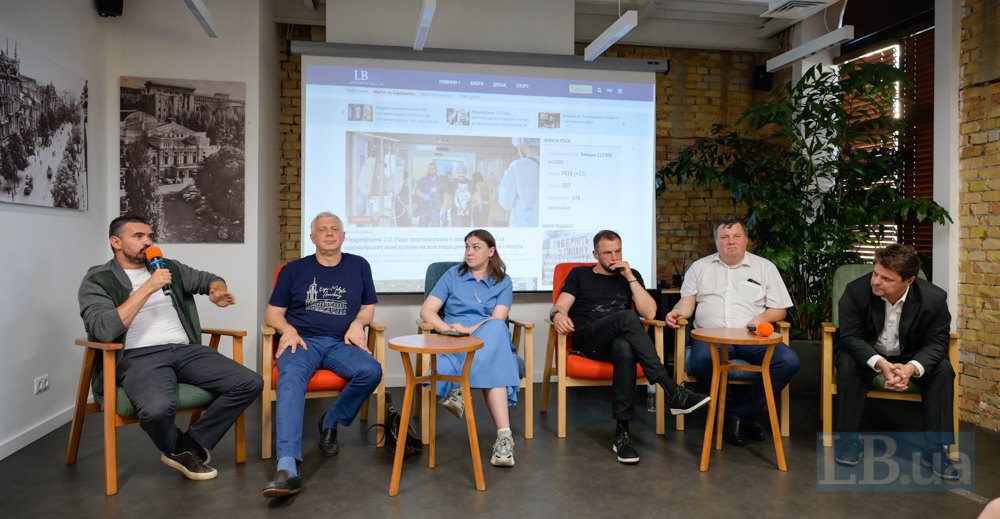
According to the rector, almost nothing has changed at Kyiv Mohyla Academy in terms of the statistics of the admission campaign - it is the same as before the war.
"During the full-scale war, we opened two new faculties - the Faculty of Health Sciences and the School of Vocational and Natural Education. We are in the process of creating a medical faculty. It will be a public-private partnership. That is, we have created such a large project as Kyiv-Mohyla Global Academy. International cooperation is growing. But I want to say that our university remains in its niche. We are proud of our community. The community is the most important thing. Not the faculties, but the community. This is what is most attractive for applicants and their families, for their parents. They make a conscious choice," Kvit notes.
The new team has been at the National Aviation University for only six months, and Kseniya Semenova took over as rector two months ago, but there are already a number of noticeable changes at the university.
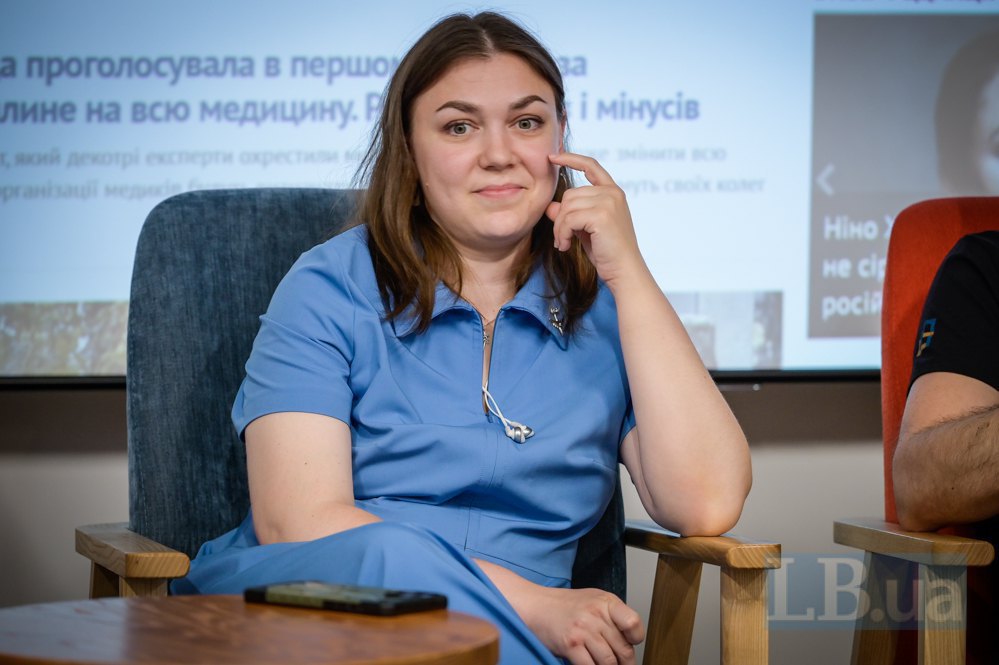
"It changes the attitude towards students, becomes student-centred. This is when you treat them as adults, not as children. This is manifested in very specific things. We no longer have a vice-rector for educational work. We have hired an HR director who has previously worked in public and private companies. She is now developing strategies for human capital development, which applies to both staff and students. For students, it concerns the career office, for example, when you can get the most accessible information in a civilised way about where to go for an internship, dual education, where to work," says the acting rector.
The approach to learning English is changing, there will now be more of it and it will be taught according to the level of knowledge. Also, students start working from the second or third year of their studies.
Accordingly, the NAU is changing and adapting its curricula and faculty.
"We cannot change all the several hundred study programmes at the university. NAU is 15,000 students, 3,000 teachers, 10 faculties, whatever you want. In addition to technical faculties, we have humanities faculties. We choose two or three study programmes that we will consider to be standard, and for each of them we will have a main partner with whom we will rebuild the programme. The idea is that a student will not choose between going to KPI or NAU, but between going to KPI or Boeing-Ukraine, for example. This is how it will look like for them," says the head of the NAU.
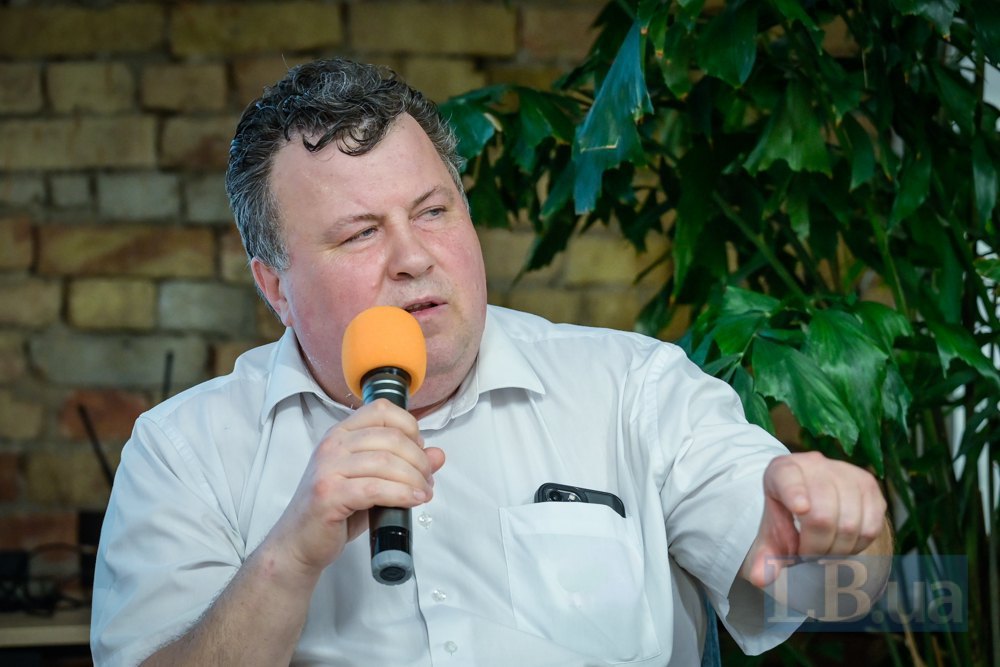
"Ukraine, despite all the troubles and criticisms that everyone here can make in packs, is a place of opportunities if you want to develop. Yes, we do not have such equipment, we do not have such access to networks [as abroad], but this sometimes stimulates just that search," says the rector of the Kyiv National University Volodymyr Bugrov, adding that the university trains Olympic teams in chemistry, mathematics, biology, and astrophysics.
Now, Shevchenko University is looking for funds to open a Biotech MedScience Hub, which will focus on computer chemistry and drug discovery, among other things. So, the rector summarises, there are opportunities to study and develop in Ukraine if you want to.








